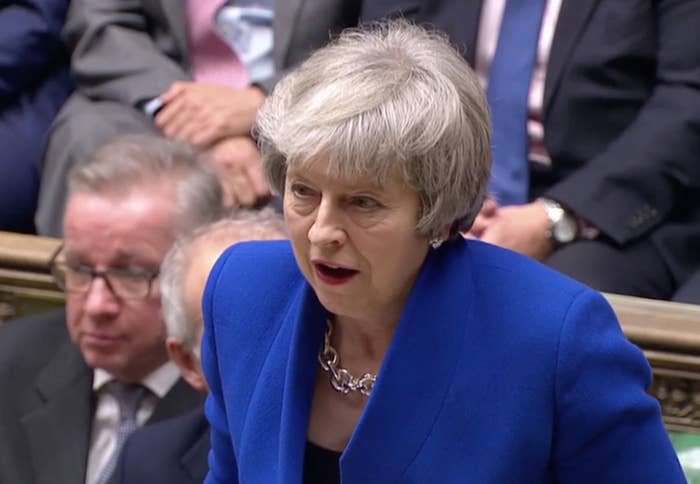
Theresa May’s Conservative government has survived a confidence vote in the House of Commons, a day after her Brexit policy was overwhelmingly rejected in one of the most devastating political defeats in UK history.
On another day of turmoil and confusion in Westminster, MPs voted 325 to 306 on Wednesday night to reject a motion of no confidence tabled by the opposition Labour party. May’s ailing government was propped up by dozens of Tory rebels who rallied to keep her in position just 24 hours after sinking her most important policy.
May survived thanks to the support of the Conservatives’ parliamentary allies, the 10 MPs in Northern Ireland’s Democratic Unionist Party, who also swung back behind the government this time after voting against the Brexit agreement on Tuesday.
It was expected that May would win the confidence vote despite her weakened position because, although the rebel Tories and the DUP refused to support her on Brexit, they don’t want to risk a general election that could result in Jeremy Corbyn taking power.
The result of the confidence vote, while a temporary relief for May, hardly eases the political gridlock in Westminster. Her government carries on, yet it is far from clear how she can achieve consensus among MPs who voted more than two-to-one against her withdrawal terms on Tuesday.
"I do not take this responsibility lightly," May said after the vote. "And my government will continue its work to increase our prosperity, to guarantee our security, and to strengthen our union."
MPs now "have a responsibility to identify a way forward that can secure the backing of the House," the prime minister added.
She invited leaders of the other parties individually for discussions about how to end the deadlock and said she wanted those talks to start right away, on Wednesday night.
However, progress may be difficult to achieve since both main party leaders appeared reluctant to give ground to the other.
Corbyn said he will only engage in meaningful talks with the prime minister if she takes a no-deal exit off the table.
May’s spokesperson said the prime minister would not agree to Corbyn’s demand, adding: “She is determined to deliver on the verdict of the British public, and that is to leave the EU on March 29 this year.”
Corbyn’s spokesperson insisted: “If we’re talking about substantive talks about how to how to break the Brexit deadlock, no deal has to come off the table.”
Earlier on Wednesday, before the vote, Corbyn told the Commons: “The prime minister has lost control and the government has lost the ability to govern.”
The opposition leader indicated shortly after the Brexit deal was defeated on Tuesday that he would bring a motion of no confidence. Labour insiders say the party could try again in the coming weeks, even though they failed to get the numbers to remove the Conservatives this time.
The confidence motion was the latest in a series of brutal confrontations between the prime minister and MPs over Brexit. In recent weeks her government has lost several significant votes in parliament and even been held in contempt by the House. And May faced a leadership challenge in which more than a third of her MPs opposed her staying in Downing Street.
In the past, a defeat on the scale of Tuesday's vote would have been regarded as fatal to the government. But the introduction of the Fixed-term Parliaments Act in 2011 established rigid time limits for governments and made it harder to call an election.
With May determined to cling on, Labour needed to get a majority of the Commons to agree with its motion of no confidence to remove her. That meant convincing Tories to vote to remove their own government, a move that would probably immediately end their careers in the party.
Had the motion passed, May would likely have resigned and parliament would have had 14 days to convince the Queen that a new government could be formed; if that failed, a general election would have been called.


